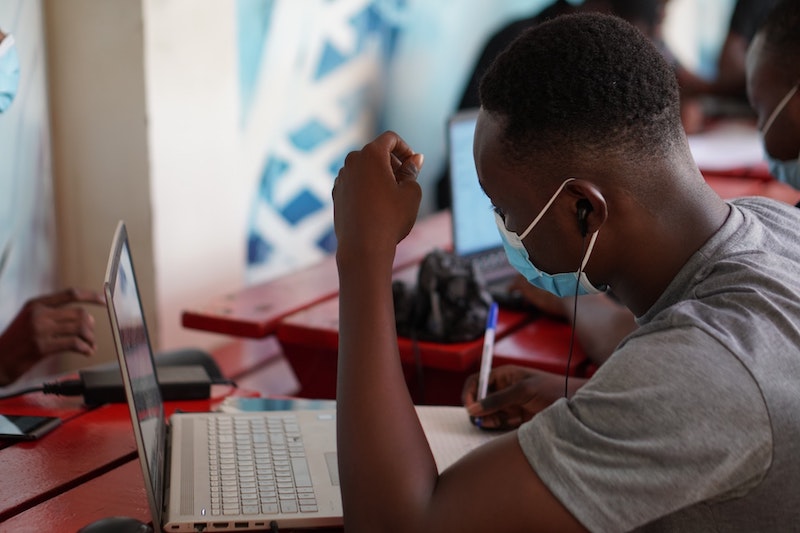Ghana Tech Lab: The Next Generation of Innovators

The Ghana Tech Lab, a collaborative tech-centric company, has now connected 7,000 youths with digital and technical education as part of its Ghana Startup Ecosystem program. The goal is to build the next generation of tech entrepreneurs in Africa.
About the Ghana Tech Lab
The Ghana Tech lab is a company building a launch platform for young tech talent in Ghana. Headquartered in Accra, the lab takes a multi-stage approach to launch startups. First, trainees complete a three-month intensive training program to develop technical and digital skills. The top talents from this program then move to the incubation program, where trainees build a business model and receive mentorship.
Finally, the company connects the new startups with seed funding through grants and a network of venture capitalists. By supporting entrepreneurs, the company hopes to fight poverty through innovation, economic development and job creation. Since its founding in 2018, the base program alone has trained 3,933 Ghanaians and incubated 68 startups.
Once a founder begins a startup, it joins the Ghana Startup Ecosystem, a program and database run by The Ghana Tech Lab. Its goal is to act as a central hub for tracking and supporting Ghanian startup ventures. The Ecosystem tracks human capital, market and financial data across Ghana. The database serves to contextualize ventures and produce market trends to substantiate ventures. This system legitimizes startups and encourages global investment.
In fact, 50% of the startups within the system secure funding. The adjunct of the Startup Ecosystem has led to the launch and funding of 100 startups in Ghana, according to AllAfrica. Data-driven innovation has become a central tenant of the Ghana Tech Lab, as a way to promote long-term success. Rather than focus on the symptoms of poverty in Ghana, the company hopes to use economic revitalization as a way to target poverty at the source.
About the State of Poverty in Ghana
In order to understand why tech plays a role in poverty reduction, it is important to contextualize poverty in Ghana. As of 2021, Ghana has a poverty rate of 11.3%. It means that 3.57 million people live on or under $1.90 a day. The country experienced a decrease in poverty from 52.6% to 21.4% between 1991 and 2012. However, the rate of decline has become stagnant over recent years. At the same time, economic development has steadily improved over the last decade. The combination of economic growth and poverty maintenance has led to an increasing rate of economic inequality.
Because of these conditions, the World Bank in Ghana has determined that developing human capital, growing the job market and improving economic resiliency are the best strategies for decreasing poverty and economic inequality. The Ghana Tech Lab has created a business model that targets all three strategies.
The Way Building Tech Startups Fights Poverty
By directly increasing access to education and skill development, the Ghana Tech Lab removes barriers of entry for skilled work. Sourcing funding for startups benefits job production and improves long-term job security. The innovations that startups spur on also improve economic resilience. Often, the startups that come out of the Ghana Tech Lab target poverty directly. For example, Farminista Africa is a woman-led company that helps smallscale female farmers grow their businesses. By 2030, the Ghana Tech Lab expects to produce 30 million new jobs through technical education and economic development, according to AllAfrica.
By increasing accessibility to digital skills, the Ghana Tech Lab is building a new path forward. The company shows that poverty reduction is a natural byproduct of community empowerment.
– Aiden Smith
Photo: Unsplash
